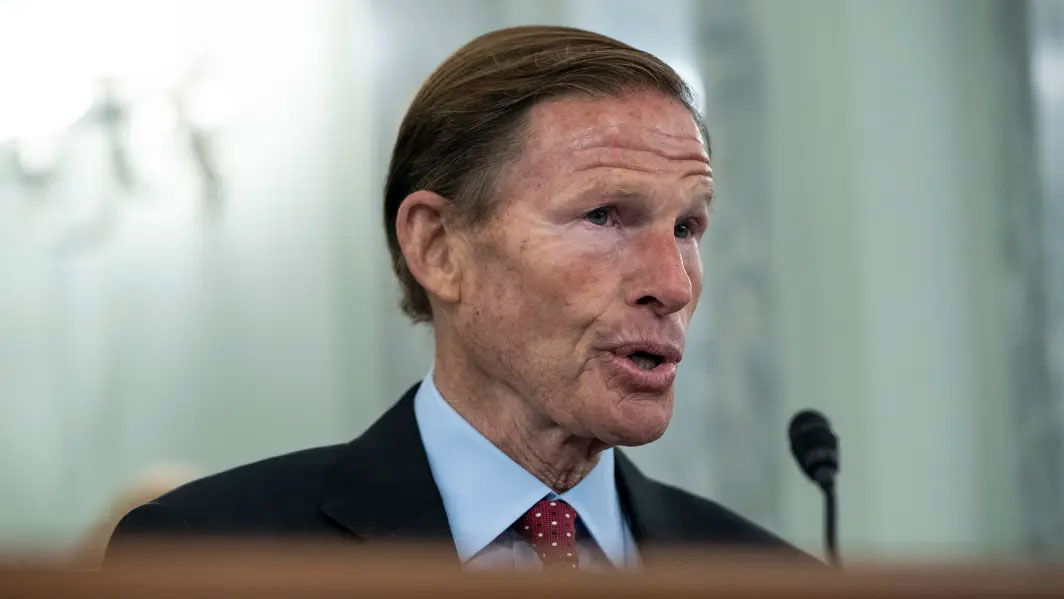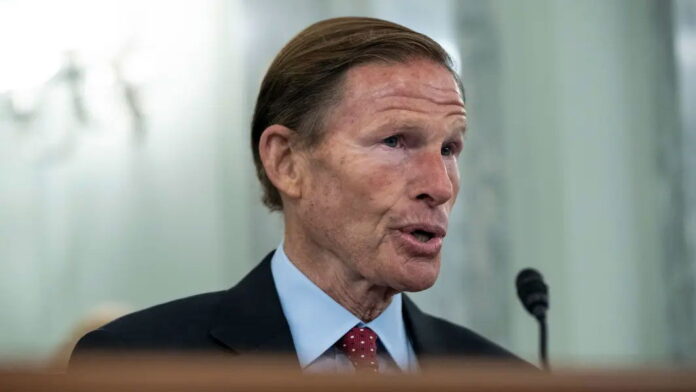
Lawmakers on Capitol Hill introduced a new bill on Thursday aimed at imposing strict federal oversight on the rapidly growing sports betting industry. The Supporting Affordability and Fairness with Every Bet Act, or SAFE Bet Act, was unveiled by Senator Richard Blumenthal (D-CT) and Representative Paul Tonko (D-NY). The proposed legislation seeks to limit advertising, enforce affordability checks on bettors, and restrict the use of artificial intelligence by gambling companies.
If passed, the bill would require the 38 states where sports betting is already legal to reapply for permission to operate under new federal standards, overseen by the U.S. Department of Justice. States would need to gain approval from the Attorney General, and any such approval would only be valid for three years before needing renewal.
“State regulation is faint-hearted and half-baked,” Senator Blumenthal said during the announcement. “That’s why we need a national standard—not to ban gambling but to regain control over an industry that is out of bounds.”
Representative Tonko echoed these sentiments, emphasizing the need to address gambling addictions. “We need to address addictions of all kinds. If not, we’re failing in our responsibilities,” he said.
However, the push for federal oversight has already faced significant pushback. Industry groups argue that states have already implemented their own strict regulatory frameworks and that the SAFE Bet Act undermines their authority.
“Introducing heavy-handed federal prohibitions is a slap in the face to state legislatures and gaming regulators who have spent years developing thoughtful frameworks unique to their jurisdictions,” said Chris Cylke, Senior Vice President of Government Relations for the American Gaming Association.
The SAFE Bet Act tackles three main areas: advertising, affordability, and the use of AI. The bill proposes a ban on sports betting advertisements between 8 a.m. and 10 p.m. and during live sporting events. It would also prohibit common industry promotions like “bonus bets” and “no sweat bets.”
The legislation would further limit bettors to five deposits within a 24-hour period and ban the use of credit cards for gambling transactions. In a nod to affordability checks already seen in countries like the U.K., the bill mandates that gambling operators perform checks on bettors who wager more than $1,000 in a single day. Those whose gambling exceeds 30% of their income would be barred from placing additional bets.
Additionally, the bill proposes a national self-exclusion list, which gambling operators would need to consult before accepting wagers from any customer. This would mirror similar lists already in place in countries like Australia and the U.K.
Blumenthal also expressed concern over the use of artificial intelligence (AI) by gambling companies. Under the proposed legislation, AI tools would be prohibited from tracking individual gambling habits or tailoring personalized betting offers. Microbetting, in particular, was highlighted as a dangerous form of gambling, with Blumenthal calling the use of AI in its promotion “appalling and frightening.”
“Let’s be very clear: right now, the gambling industry methodically and relentlessly targets losers,” Blumenthal said. “Because that’s where the money is.”
Unsurprisingly, the introduction of the SAFE Bet Act has drawn immediate backlash from industry stakeholders, who view the proposed federal regulations as an overreach.
“Six years into legal sports betting, introducing heavy-handed federal prohibitions is a slap in the face to state legislatures and gaming regulators who have dedicated countless time and resources to developing thoughtful frameworks unique to their jurisdictions, and have continued to iterate as their marketplaces evolve,” Cylke said.
Representative Dina Titus (D-NV), a long-time advocate for gaming legislation, also criticized the bill, calling it “outdated and unwarranted.” She argued that pre-empting state gaming regulators by placing restrictions on advertising and bet types would do more harm than good.
“While the SAFE Bet Act is perhaps well-intentioned, pre-empting state gaming regulators by outlawing most forms of advertising and restricting the types and methods by which customers can place bets is a misguided approach,” Titus stated.
The iDevelopment and Economic Association (iDEA), a trade group representing online gaming and sports betting operators, issued a statement emphasizing the success of state-level regulation and warning that federal oversight could undermine these efforts.
Despite the opposition, Blumenthal and Tonko were joined at the press conference by representatives from the Northeastern University Public Health Advocacy Institute, as well as Gordon Douglas, whose son struggled with gambling addiction. The group framed the issue as one of public health, with Blumenthal declaring, that this bill is a matter of stopping addiction, saving lives, and making sure that young people, in particular, are protected against exploitation.
Original article: https://www.yogonet.com/international/noticias/2024/09/13/78588-lawmakers-introduce-new-bill-to-impose-strict-nationwide-regulations-on-sports-betting
















